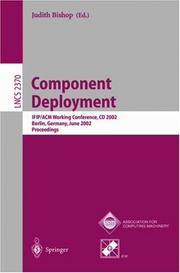| Listing 1 - 10 of 34 | << page >> |
Sort by
|
Book
Year: 1921 Publisher: S.l. s.n.
Abstract | Keywords | Export | Availability | Bookmark
 Loading...
Loading...Choose an application
- Reference Manager
- EndNote
- RefWorks (Direct export to RefWorks)

ISBN: 3445023557 9783445023551 Year: 1985 Volume: Heft 168 Publisher: Meisenheim Hain
Abstract | Keywords | Export | Availability | Bookmark
 Loading...
Loading...Choose an application
- Reference Manager
- EndNote
- RefWorks (Direct export to RefWorks)
Seneca, Lucius Annaeus, --- Tragedies --- Political and social views --- Technique --- Mythology, classical, in literature --- Politics and literature --- Politics in literature --- Rhetoric, Ancient --- Tragedy --- Rome --- Politics and government --- Mythology, Classical, in literature --- -Politics in literature --- Drama --- Political science in literature --- Literature --- Literature and politics --- Classical languages --- Greek language --- Greek rhetoric --- Latin language --- Latin rhetoric --- Political aspects --- Rhetoric --- Seneca, Lucius Annaeus --- Tragedies. --- Political and social views. --- -Mythology, Classical, in literature. --- Politics in literature. --- Rhetoric, Ancient. --- Tragedy. --- -Rhetoric, Ancient --- Sénèque --- Mythology, Classical, in literature. --- -Seneca, Lucius Annaeus, --- Ancient rhetoric --- Rim --- Roman Empire --- Roman Republic (510-30 B.C.) --- Romi (Empire) --- -Mythology, Classical, in literature --- Seneca --- Sénèque. Théâtre. --- Seneca (Lucius Annaeus). Toneel. --- Annaeus Seneca, Lucius, --- Seneca, Annaeus, --- Seneca, --- Seneca, L. A. --- Seneca, Lucio Anneo, --- Seneka, --- Seneka, L. Annėĭ, --- Sénèque, --- סנקא, לוציוס אנאוס --- Pseudo-Seneca --- Technique. --- Politics and literature - Rome --- Seneca, Lucius Annaeus, - approximately 4 BC-65 AD - Tragedies --- Seneca, Lucius Annaeus, - approximately 4 BC-65 AD - Political and social views --- Rome - Politics and government - 30 BC-476 AD --- Seneca, Lucius Annaeus, - approximately 4 BC-65 AD

ISBN: 3540438475 9783540438472 3540454403 Year: 2002 Publisher: Berlin ; New York Springer
Abstract | Keywords | Export | Availability | Bookmark
 Loading...
Loading...Choose an application
- Reference Manager
- EndNote
- RefWorks (Direct export to RefWorks)
Deployment is the act of taking components and readying them for productive use. There may be steps following deployment, such as installation or m- agement related functions, but all decisions about how to con?gure and c- pose/assemble a component are made at the deployment stage. This is therefore the one opportunity in the software lifecycle to bridge the gap between what the component developer couldn’t know about the deployment environment and what the environment’s developer couldn’t know about the open set of depl- able components. It is not surprising that deployment as a dedicated step gains importance when addressing issues of system-wide qualities, such as coping with constrained resources or preparing for component adaptation and system evolution. Yet, component deployment is still a discipline in its infancy: it became mainstream practice only in the mid 1990s. Much of the best practice impulse originated in products like Microsoft’s Transaction Server and its approach to attribute-based programming and later products like Enterprise JavaBeans and now the Corba Component Model. All these address the speci?c needs of enterprise appli- tion servers. However, the potential of the deployment concept goes far beyond this. Deployment can and should touch e?ectively all truly component-based solutions. The proceedings of Component Deployment 2002 represent a good cro- section of the gamut of deployment issues. From customization to address - source constraints to recon?guration of deployed systems and from architecture to design to languages, the avid reader will ?nd some contribution.
Component software --- System design --- User interfaces (Computer systems) --- Computer software --- Computer science. --- Architecture, Computer. --- Software engineering. --- Computer programming. --- Programming languages (Electronic computers). --- Computer logic. --- Computer Science. --- Software Engineering. --- Computer System Implementation. --- Software Engineering/Programming and Operating Systems. --- Logics and Meanings of Programs. --- Programming Languages, Compilers, Interpreters. --- Programming Techniques. --- Computer science logic --- Logic, Symbolic and mathematical --- Computer languages --- Computer program languages --- Computer programming languages --- Machine language --- Electronic data processing --- Languages, Artificial --- Computers --- Electronic computer programming --- Electronic digital computers --- Programming (Electronic computers) --- Coding theory --- Computer software engineering --- Engineering --- Architecture, Computer --- Informatics --- Science --- Programming --- Computer network architectures. --- Logic design. --- Design, Logic --- Design of logic systems --- Digital electronics --- Electronic circuit design --- Logic circuits --- Machine theory --- Switching theory --- Architectures, Computer network --- Network architectures, Computer --- Computer architecture

ISBN: 0674020979 9780674020979 0674008804 9780674008809 0674016254 9780674016255 Year: 2004 Publisher: Cambridge, MA
Abstract | Keywords | Export | Availability | Bookmark
 Loading...
Loading...Choose an application
- Reference Manager
- EndNote
- RefWorks (Direct export to RefWorks)
In 1989 Michael Bishop and Harold Varmus were awarded the Nobel Prize for their discovery that normal genes under certain conditions can cause cancer. In this book, Bishop tells us how he and Varmus made their momentous discovery. More than a lively account of the making of a brilliant scientist, How to Win the Nobel Prize is also a broader narrative combining two major and intertwined strands of medical history: the long and ongoing struggles to control infectious diseases and to find and attack the causes of cancer. Alongside his own story, that of a youthful humanist evolving into an ambivalent medical student, an accidental microbiologist, and finally a world-class researcher, Bishop gives us a fast-paced and engrossing tale of the microbe hunters. It is a narrative enlivened by vivid anecdotes about our deadliest microbial enemies--the Black Death, cholera, syphilis, tuberculosis, malaria, smallpox, HIV--and by biographical sketches of the scientists who led the fight against these scourges. Bishop then provides an introduction for nonscientists to the molecular underpinnings of cancer and concludes with an analysis of many of today's most important science-related controversies--ranging from stem cell research to the attack on evolution to scientific misconduct. How to Win the Nobel Prize affords us the pleasure of hearing about science from a brilliant practitioner who is a humanist at heart. Bishop's perspective will be valued by anyone interested in biomedical research and in the past, present, and future of the battle against cancer.
Medical scientists --- Oncogenes. --- Nobel Prizes. --- Awards --- Onc genes --- Cancer genes --- Proto-oncogenes --- Biomedical scientists --- Health scientists --- Life scientists --- Medical research personnel --- Bishop, J. Michael,
Book
Year: 1987 Publisher: Brussel : Koninklijk Belgisch instituut voor natuurwetenschappen,
Abstract | Keywords | Export | Availability | Bookmark
 Loading...
Loading...Choose an application
- Reference Manager
- EndNote
- RefWorks (Direct export to RefWorks)
Periodical
Year: 1856 Publisher: Cleveland : Printed by Harris, Fairbanks & Co.,
Abstract | Keywords | Export | Availability | Bookmark
 Loading...
Loading...Choose an application
- Reference Manager
- EndNote
- RefWorks (Direct export to RefWorks)
Book
Year: 1987 Publisher: Brussel Koninklijk Belgisch Instituut voor Natuurwetenschappen
Abstract | Keywords | Export | Availability | Bookmark
 Loading...
Loading...Choose an application
- Reference Manager
- EndNote
- RefWorks (Direct export to RefWorks)
Book
Abstract | Keywords | Export | Availability | Bookmark
 Loading...
Loading...Choose an application
- Reference Manager
- EndNote
- RefWorks (Direct export to RefWorks)
Periodical
Year: 1856 Publisher: Cleveland : Printed by Harris, Fairbanks & Co.,
Abstract | Keywords | Export | Availability | Bookmark
 Loading...
Loading...Choose an application
- Reference Manager
- EndNote
- RefWorks (Direct export to RefWorks)
Book
Year: 1953 Publisher: New York American Society of Civil Engineers
Abstract | Keywords | Export | Availability | Bookmark
 Loading...
Loading...Choose an application
- Reference Manager
- EndNote
- RefWorks (Direct export to RefWorks)
| Listing 1 - 10 of 34 | << page >> |
Sort by
|

 Search
Search Feedback
Feedback About UniCat
About UniCat  Help
Help News
News